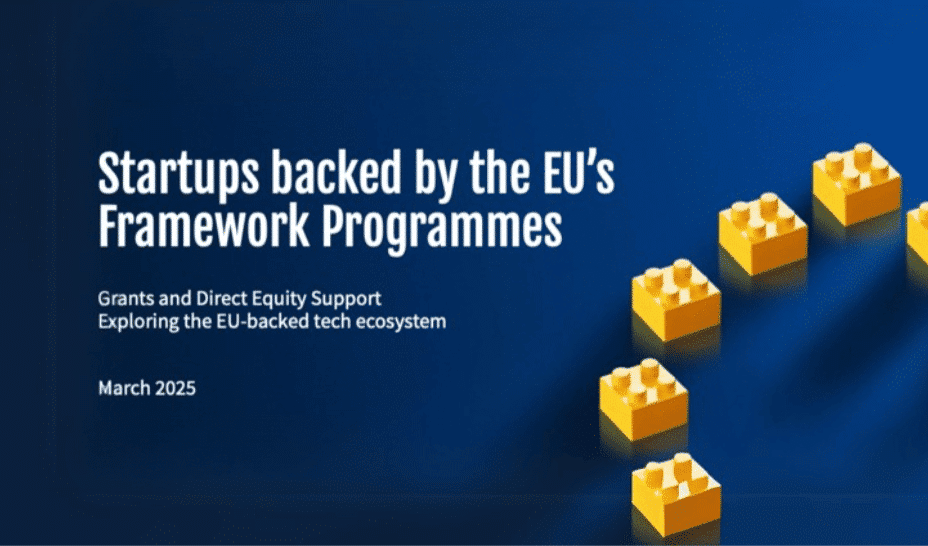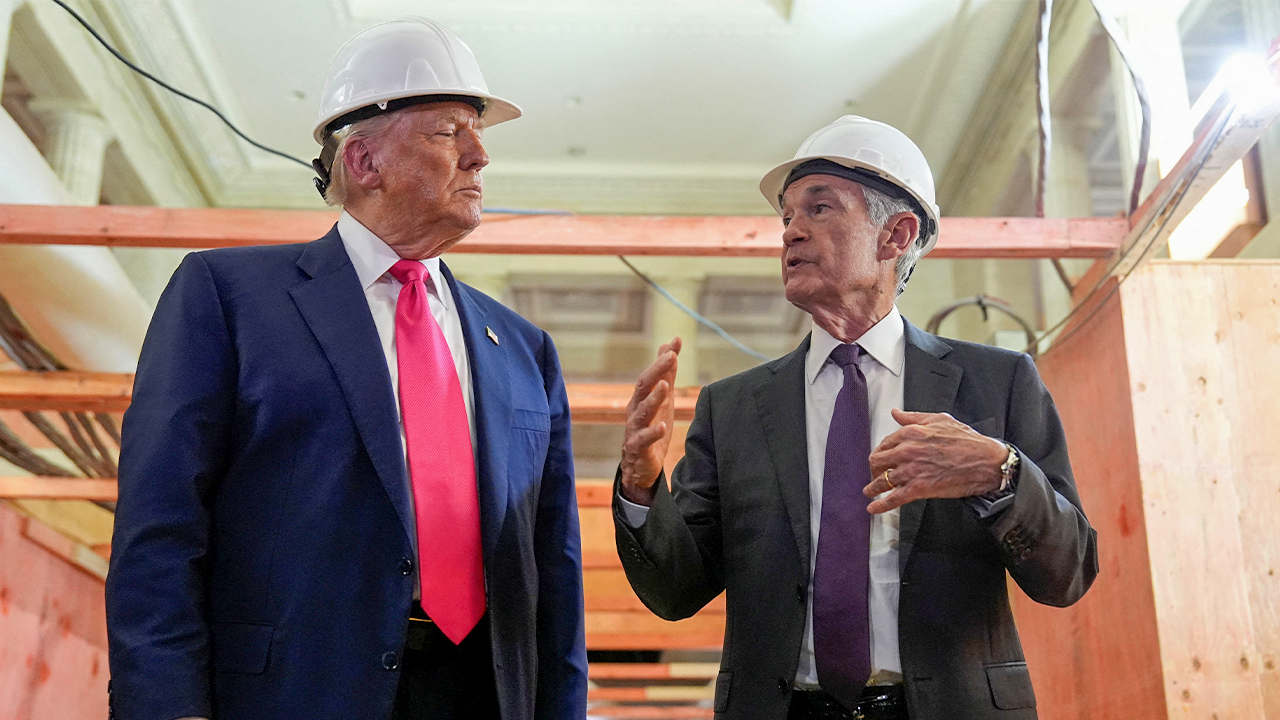A €520 billion opportunity: New report makes the case for investors and policymakers to back EU-funded startups

A quiet revolution has been unfolding in Europe’s innovation ecosystem. EU-funded startups – particularly in critical sectors like deeptech, climatetech, AI, biotech and space – have quietly amassed over €520 billion in enterprise value. And yet, they account for just 5% of total EU innovation funding. So the question is: what could be achieved if we scaled up our support?
This is the provocation at the heart of a new report from the Innovation Radar Bridge (IRB) project, the first ever to comprehensively assess the impact of EU startup support programmes. Combining data from Innovation Radar, Dealroom, and EU programme monitoring tools, the report offers something powerful: a clear, data-backed case for why policymakers and investors should take EU-backed startups far more seriously. Let’s take a closer look.
Europe’s underfunded deeptech engine
Over the past 40 years, EU research and innovation programmes have deployed around €225 billion. Just €12 billion of that, roughly 5%, has gone directly to startups. Yet this modest slice of funding has helped unlock an additional €70 billion in private capital, supporting over 13,600 startups, many of which are now valued at a collective €520 billion.
This group includes standout names like BioNTech, developer of one of the first COVID vaccines, and ARM, a mobile chip pioneer. The value these startups bring isn’t just economic; many operate in frontier tech sectors, precisely the areas where Europe wants to lead. In fact, 74% of EU-backed startups manufacture physical products, compared with just 25% in the wider ecosystem.
“This report is groundbreaking – it marks the 40th anniversary of the EU’s first research and innovation programme” explained Eoghan O’Neill, Senior Policy Officer at the European Commission and Project Officer for IRB. “The report highlights the critical role that EU-backed startups and SMEs are playing in addressing some of the world’s most pressing challenges, including climate change, healthcare, and AI-driven digital transformation. For investors, it provides a roadmap to identify high-potential, growth-oriented companies that are often overlooked. Policymakers can use these insights to drive more targeted support and make informed policy decisions that foster innovation across Europe.”

A launchpad for tech champions
So, what’s behind this success? For one, early EU support de-risks breakthrough innovation. Grants give founders the time and space to mature their technologies before facing the pressures of venture capital.
On top of this, EU programmes also provide operational support, co-investment opportunities, business acceleration, and connections to corporate partners. Startups supported through these channels show a significantly higher graduation rate between VC rounds than their non-EU-funded peers.
“This finding validates what many in the industry have long questioned: Can EU grants accelerate and increase the chances for early-stage startups? This report concluded that EU support plays a vital role in de-risking the innovation process. Early-stage grants enable startups to mature their technologies before raising venture capital, demonstrating their value to investors”, said Vittorio Sambuy, co-author of the report and Dealroom’s Vertical Leader & Platform expert. “And yet, challenges remain in establishing institutional frameworks to support university spinouts and technology transfers”.
Why visibility still matters
Despite their impact, EU-backed startups remain under the radar, which is part of the problem. To change that, the IRB report calls for scaled-up visibility and matchmaking tools. Dealflow.eu, which partners with Dealroom, is one of the key platforms named.
“Recognising the complexity of EU databases, we’ve developed a user-friendly platform to simplify access and better showcase these startups,” Vittorio Sambuy explained. “Our platform not only enhances visibility but also facilitates seamless connections between high-potential European startups and global investors, ensuring that visibility translates into real investment opportunities.”
It’s this kind of digital-first infrastructure that could help bridge the persistent awareness gap. More data, more transparency, and more storytelling are all essential ingredients if Europe wants to attract global capital into its startup ecosystem.
What needs to change
The report closes with four clear recommendations for the European Commission:
- Expand startup investment: Increase the startup allocation in Horizon Europe’s successor (FP10)
- Streamline support: Consolidate access to fragmented EU programmes into one digitally-accessible and startup-friendly pathway
- Promote visibility: Scale European summits, pitch and demo days
- Leverage digital tools: Improve Dealflow.eu and Innovation Radar for real-time insights and matchmaking
An innovation engine that needs more fuel
The IRB report shows that Europe’s startup ecosystem already delivers exceptional results, even with a comparatively modest public investment. With improved access to EU programmes, ambitious capital deployment, and increased visibility, the full potential of high-achieving European startups can be unlocked.
For policymakers and investors alike, it’s time to get on board. As explained by Eoghan O’Neill, Senior Policy Officer and Project Officer for IRB, “the Innovation Radar Bridge project will play a key role in this transformation”, with the Innovation Radar platform continuing to evolve, “offering startups more precise, targeted opportunities that align with their stage and sector”.
Explore the full Innovation Radar Bridge report here and discover how to back the next generation of European tech champions.
The post A €520 billion opportunity: New report makes the case for investors and policymakers to back EU-funded startups appeared first on EU-Startups.













































.png?Expires=1838763821&Key-Pair-Id=K2ZIVPTIP2VGHC&Signature=IO0~CT3pU-TcxGc~yoZSmoQx23MZVuK-~4jSii~NKEblRmyO3el7NXPu~Rh1o23voASg7hlcHLw4kvQuDK1jssEhcjoNBBvEpZ~GGOAU6yosBhpHpeF179F~h7i6VxmsBNh9gtTutkoqY73O2YCFey~IAqSzKbBqETP1kP9cAg1916Z1YkJJs-5MliMrkZ5d7-mWGLbpHp2wGj2VlMph8XzYlL4~y1O7fB~JdIS~Rs4RMRs2x0WT1qUIpHAsf3GdwtOyAmKFSpIg8xCyNGZZ5h~13nXlmpd7uPvW8tBfttpG9pFTqcway-uch5WyfHOEfi7UlJCOWrr6fCYY5PMgSg__)







